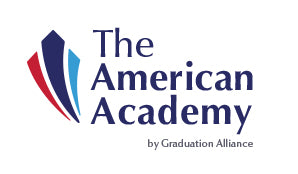The Creative Revolution
Posted on October 20 2014
It's okay to make mistakes. Mess up. Make a mess. Shoot and miss. Shoot again and miss again. It's alright to not get it the first time. Or the second time. Or the third time. Mistakes are an integral part of learning and creating, and students with the freedom to make them have the space they need to be creative.
We see the courage of creativity in little children all the time. Ken Robinson, an English author and educator who consults on government art programs and education policies, pointed out in his iconic Ted Talk "How School Kills Creativity" the way children, when faced with an unknown, will try anyway. They're not afraid to make a mistake, and are therefore empowered with the opportunity to accidentally summon up powerful, original ideas.
The reason online high school courses are so popular is the freedom they offer you. No lording instructors, no strict class schedules or campus regulations. You can learn at your own pace, in your own way. That freedom comes with a lot of wonderful opportunities, and one of them is the chance to grow and flex your creativity.
Rethinking Mistakes
To earn your diploma, you will engage with your creativity. It’s inevitable. You’ll write, draw, paint and problem solve. You’ll create presentations and portfolios. The excellence of online education in particular is the opportunity to make and work through mistakes. To accept them as indications of progress. They’re proof you’re moving forward and trying new things. Scott Adams, a highly successful cartoonist and satirist, argued that “creativity is allowing yourself to make mistakes. Art is knowing which ones to keep.” With the freedom that comes with setting your own learning schedule, you have the time to experiment with new ways of studying, to practice unprescribed approaches to your school work that are personal to you.
The Freedom to Choose
Ken Robinson goes on in his Ted Talk to address a fault of traditional schools. He argues that they strip mine students’ minds for particular talents (math, languages) while blatantly ignoring or repressing more creative fields like art and music. He explains that the world at large is undergoing a professional revolution wherein creativity is as important as literacy.
Taking online courses means you get to choose the courses that are important to you. Core curriculum still prevails, but you can pursue the classes that play on your personal strengths and interests. You can choose to learn the knowledge you want to learn, and practice the skills that you want to practice. You can earn your diploma with a whole mind.





